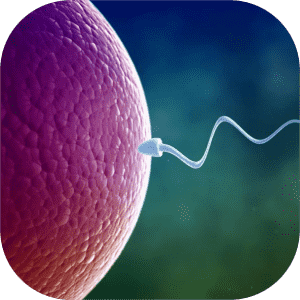What is Infertility Treatment?
Reproductive health plays a crucial role in fertility and the ability to conceive. Both partners need a healthy reproductive system to maximize the chances of a natural pregnancy. Issues with reproductive organs—such as hormonal imbalances, low sperm count, or conditions like PCOS or endometriosis—can make natural conception more challenging. Infertility may require medical intervention, such as IVF or other assisted reproductive technologies, to achieve pregnancy. Understanding reproductive health is key to improving fertility and increasing the chances of starting a family.

What Causes Infertility?
Understanding what caused infertility is essential for improving fertility and increasing the chances of conception. The doctor will then be able to move forward with the needed treatment to boost the patient’s fertility.
Primary Infertility
Primary infertility refers to couples who have not been able to get pregnant after 1 year of trying. Unlike secondary infertility, where a couple has previously conceived but struggles to do so again, primary infertility means pregnancy has never occurred.
Decreasing Egg Reserves and Infertility
Research shows that 84% of sexually active couples are able to conceive in under a year. A higher ratio of 92% conceive within the second year of trying to get pregnant. However, as women get older, their egg reserves are a deterministic factor in their ability to reproduce. Additionally, late pregnancies may increase the chances of miscarriages and giving birth to a child with a birth defect.
Infertility and Time
A woman’s fertility naturally declines with age due to a decreasing egg reserve and lower egg quality. Women are born with a finite number of eggs, and by their mid-30s, fertility starts to decline more rapidly. By age 40, conception rates drop significantly, and the risk of miscarriage and infertility increases. Understanding the link between age and fertility can help with family planning, egg freezing, and fertility treatments like IVF.
The Line Between Male and Female Infertility Origins

As women and men have different reproductive systems, their causes of infertility vary. Their undiagnosed issues may be the reason behind their conceiving difficulties, which include:
- Sexual dysfunction
- Inflammation of the male reproductive tract
- Systemic diseases
However, with a healthy male counterpart, pregnancy issues hint towards the female’s system only. Therefore, it is important to understand all of the possible reasons as to why you experience infertility. These infertility causes may include:
- Ovulation problems
- Inflammation or obstruction in the tubes
- Anatomical disorders in the tubes
- Fibroids and polyps in the uterus
- Endometriosis
- Goiter diseases
- Diabetes

